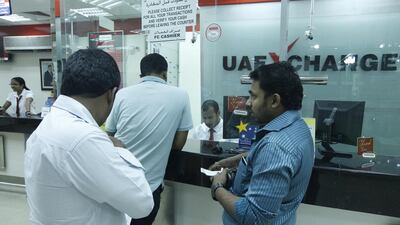Tax, especially in the UAE, is an emotive issue. When the Government first mooted the idea of VAT, there was considerable consternation among nationals and expatriates alike. Expect a similar reaction at the suggestion, mentioned this week by the Minister of State for Financial Affairs Obaid Al Tayer, that those who send money abroad may have to pay a government tax.
From one perspective, that reaction is understandable. The UAE’s brand has been built to a large extent on its tax-free environment. People are attracted to the country for many reasons, but one reason is clearly the tax-free salaries.
Diluting that is a move that requires careful consideration. It certainly is not something that can be done without consultation – as Mr Al Tayer has promised – especially on how it will affect those on low incomes, who often send money away every week. The wider cost of living must also be considered: rent, school fees and everyday expenditure have all risen in the past few years, straining some family budgets.
Nor can it be done in isolation: having higher taxation here than in other Gulf countries that also attract expatriates would make the UAE less competitive for talent.
Yet there are solid reasons for the tax to considered. The first is government income. With the price of hydrocarbons fluctuating, it can be difficult to be sure, month to month, exactly how much revenue will flow into the local economy. Tax provides a reasonably predictable income source.
There is also a question of maintaining resources. With expatriates making up the largest number of workers, a significant percentage of the money earned in the country is immediately exported, providing no benefit to the Government. There is a good argument for seeking to reclaim part of this money.
The question, as always, is how much. That’s why any fees on remittances must be carefully calibrated. A flat tax would disproportionately affect the poorest. A rising tax would penalise those who send money as a lump sum, for example for school fees abroad. For nationals of countries that rely on remittances – for example, the Philippines – there could be other knock-on effects.
A proposal such as this one requires careful study. Tax isn’t merely about money; it can affect the very way that people earn, spend and live.

